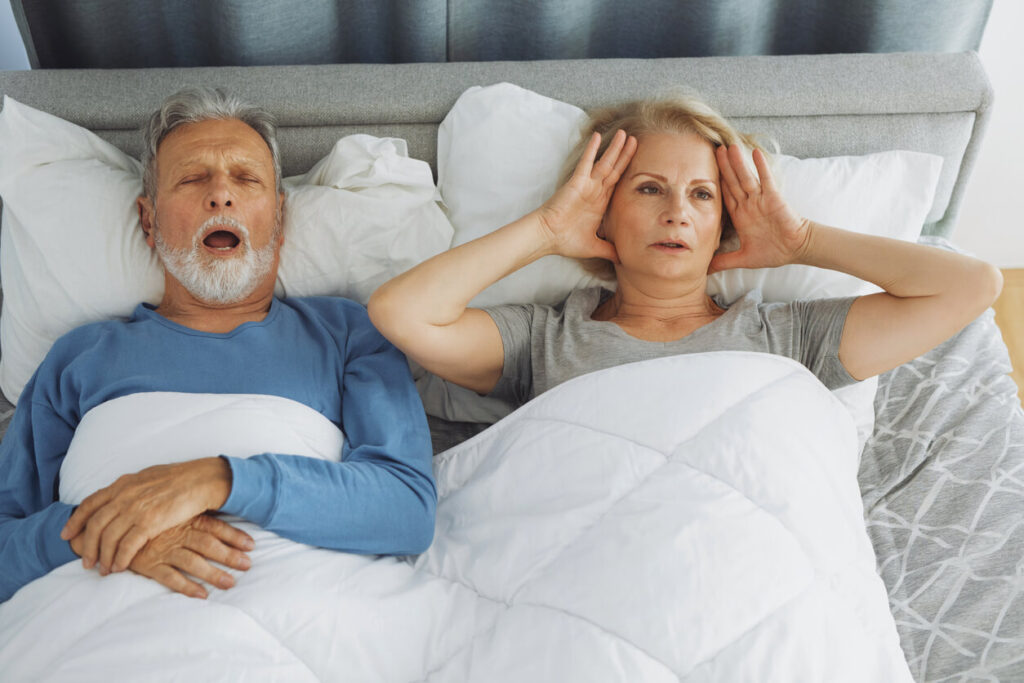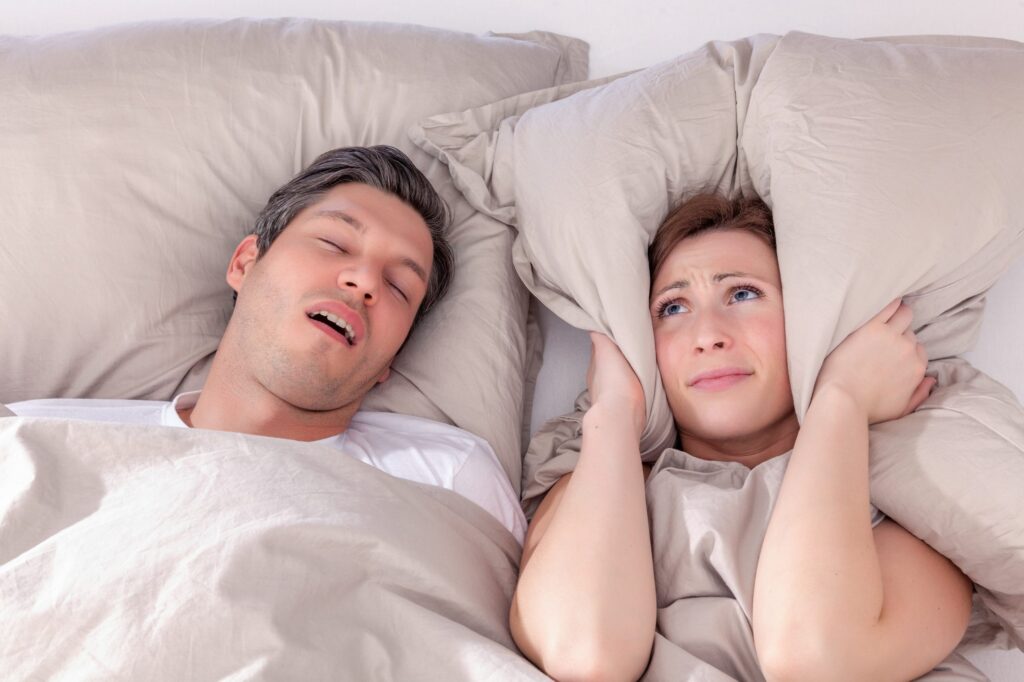The answer to the above question is determined by how you define “treatment.” Simply put, there is no magical, one-time sleep apnea remedy that can suddenly eliminate the issue. However, there are various sleep apnea treatment options available that can reduce symptoms and help people receive the healthy sleep that this condition so frequently denies them.
Unfortunately, sleep apnea therapies with positive airway pressure (PAP) or sleep apnea machine cannot be considered sleep apnea cures. They typically perform extremely well in alleviating sleep apnea symptoms. They are a technique for treating and living with the illness, not curing it.
What Can I Do About My Sleep Apnea?
If you have severe sleep apnea, you should start CPAP therapy as soon as possible. It is not a cure for sleep apnea, but it is the most clinically validated type of treatment, giving patients the best chance of living a healthy life. Other options include dental appliances for mild sleep apnea and surgery, which is normally only suggested in the most extreme cases.
If your sleep apnea is mild, or if you haven’t been diagnosed, and your sleep apnea symptoms aren’t causing you too much trouble, you may decide to explore less clinical methods. To that end, the next best thing to a sleep apnea cure is also the first therapy option most experts prescribe.

How Complex Is a Treatment for Sleep Apnea?
Although there is no official cure for sleep apnea, decreasing weight is nearly typically the first piece of advice offered to those who exhibit symptoms of sleep apnea such as lethargy, exhaustion, snoring, and so on.
According to professional, decreasing weight can reduce the fat that restricts breathing passages and causes obstructive sleep apnea (OSA). It is also claimed that decreasing weight will not only address your sleep problems, but it will assist your cholesterol, your knees, your clothes will fit better, and you will be happier.
Dr. Lawrence Epstein of Brigham and Women’s Hospital goes even farther, telling Harvard Women’s Health Watch, “If we can persuade patients to lose weight, both sleep apnea and other health concerns [like heart disease] will go away.
Losing just 10% of body weight can significantly impact sleep apnea symptoms. In certain circumstances, significant weight loss can potentially cure the illness.”
It should be highlighted that weight loss would only be effective as a potential sleep apnea cure in cases of OSA, where the airway is closed, as opposed to CSA, where breathing issues are caused by missed signals between the brain and the respiratory system. However, the majority of sleep apnea diagnoses are OSA rather than CSA; the American Sleep Apnea Association believes that just one in every five sleep apnea patients has CSA.
So, is losing weight a solution for sleep apnea? Not quite, but it’s as close as we’re going to get for people who are undiagnosed or have a minor form of sleep apnea.
Are There Any Effective Sleep Apnea Treatments Available?
Is there a treatment for sleep apnea? The answer remains the same: no “official” sleep apnea remedies exist. We’re not claiming that losing weight is a legitimate solution for sleep apnea. Losing weight may be the next best thing for persons with OSA, preventing certain moderate sleep apnea symptoms from becoming severe or life-threatening.
However, the greatest answer to whether sleep apnea remedies exist is to think of living a better life rather than a cure for sleep apnea. Following the usual recommendations for healthy sleep – in addition to clinical treatments such as CPAP or dental equipment, if necessary – may not provide a cure for sleep apnea, but it will most certainly help you receive the healthy sleep you need.
Sleep apnea is a problem that is easily treated. Treatment options range from dietary changes to surgery.
Furthermore, if you have any contributory medical issues (such as inadequate thyroid hormone production or large tonsils), these may also need to be addressed.

Changes in Lifestyle for Sleep Apnea
Making lifestyle modifications is the primary line of treatment for sleep apnea. This includes the following:
- Weight loss – If you are overweight or obese, lowering weight may improve or cure your sleep apnea. Losing weight has other health benefits.
- Reduce your alcohol consumption.
- Quit Smoking.
CPAP (Continuous Positive Airway Pressure) Machine
Aside from lifestyle adjustments, the most effective treatment available is a nighttime mask that sends higher air pressure into the airway to keep the throat from collapsing. This is called “nasal constant positive airway pressure” (CPAP).
The most frequent treatment for sleep apnea is CPAP. It is non-invasive and works by blowing air through tubing into a mask worn on the nose and/or mouth. Even if the throat muscles have relaxed too much during sleep, this air pressure flows into the back of the throat and keeps it open.
The key to CPAP treatment is to choose a mask and machine that are right for you.
Dental Instruments
Suppose you have mild to moderate sleep apnea. In that case, another therapy option is to wear an oral appliance, which is a specially designed mouthguard (such as a mandibular advancement splint or MAS). These are intended to pull the lower jaw forward to make more room in the neck, but they do not prevent the throat from closing during sleeping.
They must be fitted by a dentist and worn at all times when sleeping. They are also used as a snoring remedy.
Positioning Aids
Some people only experience sleep apnea when they lie on their backs. You might shift around in your sleep without even realizing it.
You could stitch anything (such as a tennis ball into a T-shirt or pajama top) to keep you off your back while sleeping. Some CPAP suppliers offer commercial products in this regard as well.
Upper Gastrointestinal Surgery
When other therapies for sleep apnea have failed, surgery may be considered. Surgery to the palate and base of the tongue may be recommended, particularly in school-aged children and young adults.
Upper airway surgery aims to make extra room in the throat by removing tissue. However, the amount of tissue that may be removed is limited, and it does not prevent the throat from compressing during sleep; thus, it may not be successful.
Any surgery of this sort must be performed by a specialized ear, nose, and throat surgeon (known as an otolaryngologist). Your medical team can answer any concerns you have and assist you in weighing the health benefits.
Related:
Is Sleep Apnea Fatal?
5 Signs You May Need To Buy CPAP Machines
Using your CPAP machine during hot weather